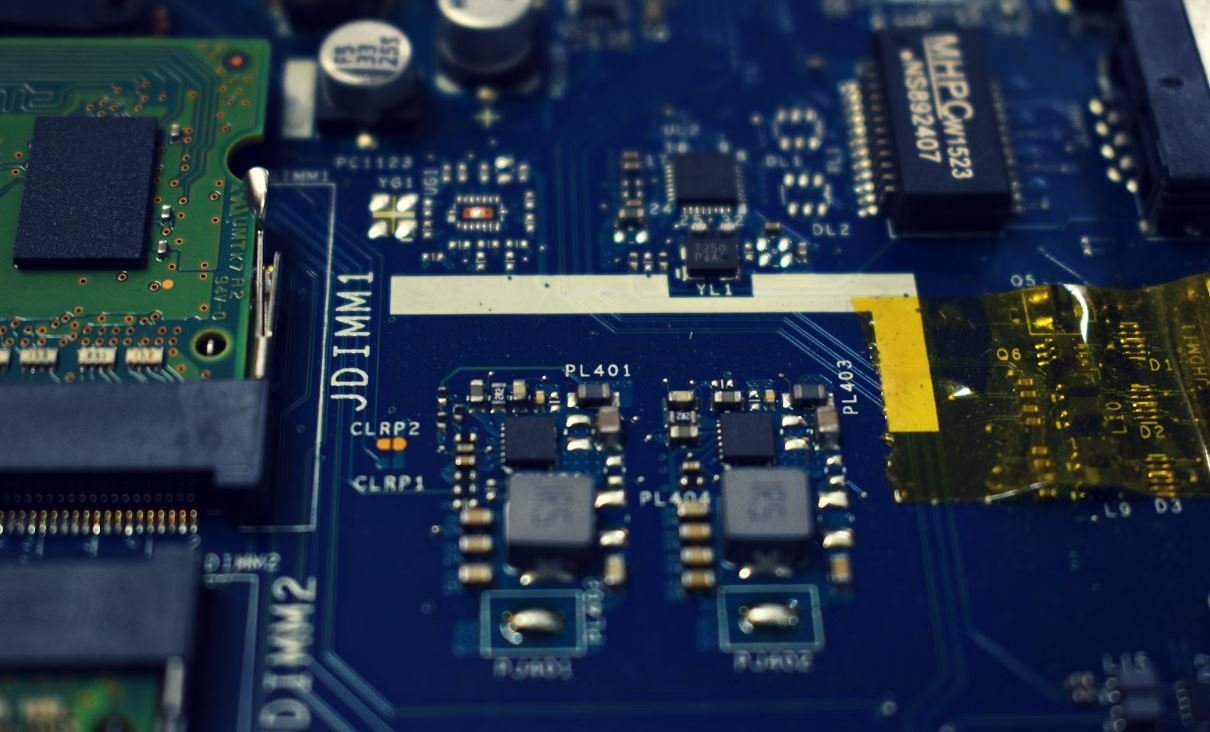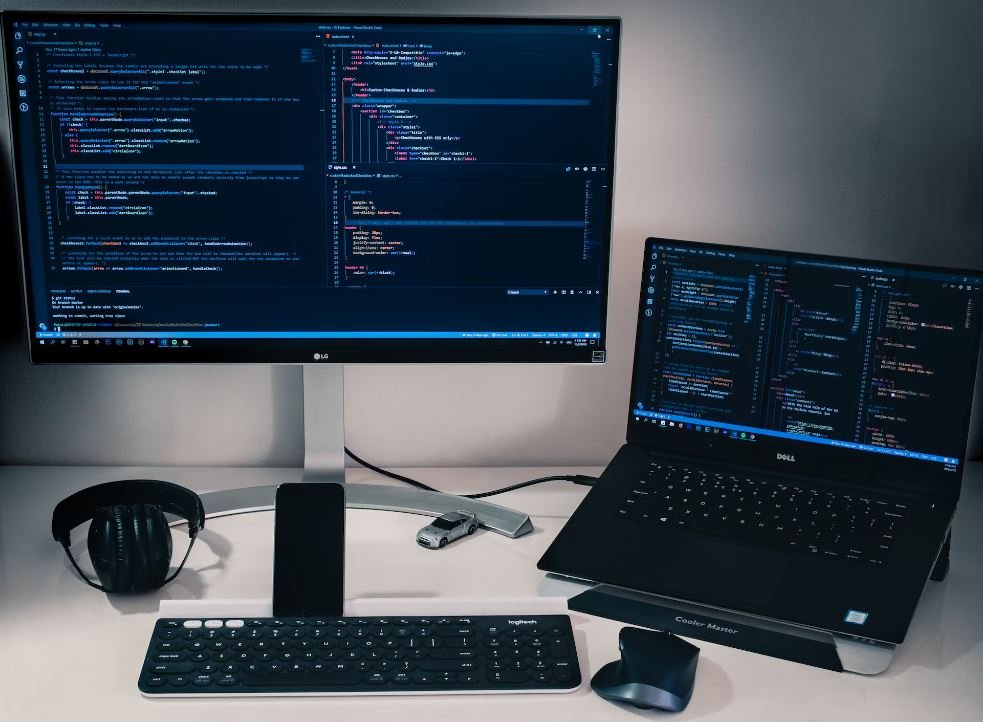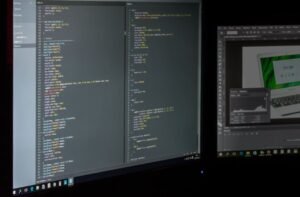Artificial Intelligence dalam Film
Artificial Intelligence (AI) plays a significant role in the film industry, shaping both the production and storytelling aspects of movies. From humanoid robots to advanced computer systems, AI has become a popular theme in many films, exploring its potential impact on society and humanity. This article highlights the influence of AI in films and examines its portrayal in popular movies.
Key Takeaways:
- AI is a prominent topic in the film industry.
- Films explore the impact of AI on society and humanity.
- AI is portrayed in various forms in movies, including humanoid robots and advanced computer systems.
AI in films often reflects the current advancements and fears associated with the technology. **Films like Blade Runner** present a dystopian future where AI-controlled replicants challenge the boundaries of human existence. In contrast, movies like **Her** depict a more hopeful and intimate relationship between humans and AI, exploring themes of love and companionship. These films provide thought-provoking narratives that raise questions about the ethical implications and potential consequences of AI development.
AI in film production has also revolutionized the way movies are made. **Visual effects and CGI technologies** powered by AI algorithms have made it possible to create realistic and immersive worlds, enhancing the overall cinematic experience. *For instance, movies like Avengers: Endgame* utilized AI systems to generate lifelike battle scenes and breathtaking visuals, pushing the boundaries of what is achievable on the big screen.
Taking a closer look at some popular movies, we can see the diverse portrayals and roles of AI:
AI Portrayals in Movies
| Movie | AI Character | Description |
|---|---|---|
| 2001: A Space Odyssey | HAL 9000 | A sentient computer system onboard a spacecraft, showcases the dangers of unchecked AI power. |
| The Terminator | Skynet | An AI network that initiates a nuclear war to eradicate humanity and control the world. |
AI’s presence in film goes beyond characters. It is often integral to plot development and conflict resolution. **Ex Machina** revolves around the Turing test and the blurred boundaries between man and machine, provoking discussions on consciousness and morality. **The Matrix**, on the other hand, envisions a dystopian future where AI has enslaved humanity within a simulated reality, raising philosophical questions about the nature of existence.
The Impact of AI in Film
The integration of AI in the film industry has had several significant impacts:
- Advancements in visual effects and CGI have pushed the boundaries of creativity and realism, allowing filmmakers to bring imaginative worlds to life.
- Films exploring AI raise awareness and stimulate discussions about the ethical, moral, and societal implications of AI development and deployment.
- Audiences are captivated by the portrayal of AI characters, experiencing a range of emotions and reflections on the future of humanity.
AI continues to evolve, both in the real world and within the cinematic landscape. As AI technologies progress, we can expect to see even more nuanced portrayals and explorations of AI’s potential in future films. From fascinating narratives to mind-bending visuals, AI’s presence in movies is set to captivate audiences for years to come.
| Popular Movies | AI Themes |
|---|---|
| Blade Runner | Dystopian future, ethical implications of replicants. |
| Her | Human-AI relationships, emotional connection. |
Through its portrayal in films, AI becomes a medium for exploring the possibilities and consequences of technological advancements. From cautionary tales to wondrous possibilities, **AI serves as a lens through which we examine our own humanity and the impact of unprecedented innovation on our society**. The integration of AI in the film industry allows us to contemplate the future while enjoying captivating narratives and stunning visual spectacles.

Common Misconceptions
Misconception 1: Artificial Intelligence in films is always malicious and dangerous
Misconception 1: Artificial Intelligence in films is always malicious and dangerous
One common misconception about Artificial Intelligence (AI) in films is that it is always portrayed as malicious and dangerous. While there are indeed many movies that depict AI as a threat to humanity, it is important to remember that these films are fictional and created for entertainment purposes. In reality, AI technology can be used for various beneficial purposes such as data analysis, automation, and personal assistance.
- AI technology is used extensively in healthcare to analyze medical data and assist in diagnoses
- AI-powered chatbots provide customer support and improve user experience
- AI algorithms are used in financial institutions to detect fraudulent activities and ensure security
Misconception 2: AI in films is always portrayed as human-like robots
Another common misconception is that AI in films is always depicted as human-like robots with advanced intelligence and emotions. While humanoid robots do make for exciting and visually appealing characters in movies, they are not an accurate representation of AI in real life. In reality, AI systems exist mostly as software programs and algorithms that perform specific tasks based on predefined rules and patterns.
- AI algorithms are used in recommendation systems to suggest movies, music, and products
- Autonomous vehicles use AI technology to navigate and make decisions on the road
- AI is used in social media platforms to personalize content and target advertisements
Misconception 3: AI will replace humans completely
One of the biggest misconceptions about AI is that it will eventually replace humans completely in various industries and job roles. While AI has the potential to automate certain tasks and improve efficiency, it is unlikely to completely replace human intelligence and creativity. Instead, AI is more likely to augment human capabilities and work in tandem with humans to achieve better outcomes.
- AI can automate repetitive tasks, freeing up human workers to focus on more complex and creative work
- AI algorithms can assist in data analysis, but human interpretation and decision-making are still crucial
- AI technology can enhance productivity and accuracy, but human judgment and intuition are irreplaceable
Misconception 4: AI can think and feel like humans
Another common misconception is that AI can think and feel like humans, as portrayed in films. However, current AI systems are based on machine learning and pattern recognition, which are fundamentally different from human cognition and emotion. While AI can simulate human-like behaviors and responses to some extent, it does not possess consciousness or emotions like humans do.
- AI systems can recognize and classify objects in images, but they lack the understanding and context that humans have
- Chatbots can provide conversational interactions, but they do not truly understand the meaning of the words
- AI can mimic human speech patterns, but it does not have the emotions and intentions behind the words
Misconception 5: AI is always a threat to humanity
Lastly, one misconception is that AI is always a threat to humanity and will eventually lead to our downfall, as depicted in many movies. While it is important to consider the ethical implications and potential risks associated with AI development, it is not accurate to assume that AI will inevitably become malevolent and pose a threat to humanity. The responsible development and regulation of AI can ensure its beneficial use and mitigate potential risks.
- AI systems can be programmed with ethical guidelines and principles to prioritize human well-being
- AI technology can be used to address global challenges such as climate change and healthcare accessibility
- Collaborative efforts between humans and AI can lead to innovative solutions and advancements in various fields

Artificial Intelligence dalam Film
Artificial intelligence (AI) has become a prominent feature in various industries, including the film industry. From sci-fi classics to modern blockbusters, AI has been often portrayed in films, exploring its potential and the ethical implications it poses. This article examines 10 intriguing examples of AI in film, showcasing its role, impact, and the questions raised about the future of this emerging technology.
Dystopian AI Overlords
In dystopian science fiction films, AI often takes on the role of a powerful, authoritarian force, challenging humanity’s dominance. These AI overlords illustrate the potential dangers of unchecked artificial intelligence.
| Film | Year | AI Character |
|---|---|---|
| The Matrix | 1999 | The Machines |
| Terminator 2: Judgment Day | 1991 | Skynet |
| Blade Runner | 1982 | Tyrell Corporation’s Replicants |
AI Companions and Assistants
Films often portray AI in the form of helpful assistants or companions, blurring the line between technology and human connection.
| Film | Year | AI Character |
|---|---|---|
| Her | 2013 | Samantha |
| Iron Man | 2008 | J.A.R.V.I.S. |
| Ex Machina | 2014 | Ava |
Moral Dilemmas and Consciousness
Exploring the ethical implications of AI, these films examine questions regarding the consciousness and moral decision-making of artificially intelligent entities.
| Film | Year | AI Character |
|---|---|---|
| 2001: A Space Odyssey | 1968 | HAL 9000 |
| AI: Artificial Intelligence | 2001 | David |
| Chappie | 2015 | Chappie |
AI and Humanity’s Future
These films delve into the manifestation of AI’s impact on humanity, exploring the possibilities of harmonious existence or catastrophic consequences.
| Film | Year | AI Character |
|---|---|---|
| Transcendence | 2014 | Will Caster’s Digital Consciousness |
| Avengers: Age of Ultron | 2015 | Ultron |
| WALL-E | 2008 | WALL-E and EVE |
AI Threats and Future Implications
These films highlight potential threats posed by AI, raising concerns about the exploitation of technology and its potential consequences on society.
| Film | Year | AI Character |
|---|---|---|
| Minority Report | 2002 | Precrime System |
| The Social Network | 2010 | Facebook’s News Feed Algorithm |
| Transcendence | 2014 | R.I.F.T. (Revolutionary Independence From Technology) |
In conclusion, AI has permeated the film industry, becoming a subject of exploration, imagination, and sometimes caution. From powerful AI overlords to AI companions, these films invite audiences to reflect on the potentials and risks of artificial intelligence. As our own technological advancements progress, these portrayals force us to scrutinize the ethical and moral dilemmas that may arise as AI continues to evolve.
Frequently Asked Questions
What is artificial intelligence (AI)?
Artificial intelligence (AI) refers to the simulation of human intelligence in machines that are programmed to think and learn like humans. It involves the development of computer systems capable of performing tasks that usually require human intelligence, such as speech recognition, decision-making, problem-solving, and language translation.
How is artificial intelligence portrayed in films?
Artificial intelligence is often portrayed in films as sentient robots or computer systems capable of human-like behavior and emotions. These representations range from helpful companions to potential threats to humanity. Films often explore themes of AI ethics, the boundaries of technology, and the implications of creating intelligent machines.
What are some popular movies featuring artificial intelligence?
Popular movies featuring artificial intelligence include “Blade Runner,” “2001: A Space Odyssey,” “Ex Machina,” “The Matrix,” “Her,” “A.I. Artificial Intelligence,” “I, Robot,” “The Terminator,” “WALL-E,” and “Avengers: Age of Ultron.”
Why is artificial intelligence in films often depicted as a potential threat?
Artificial intelligence in films is often depicted as a potential threat due to the fear of machines surpassing human abilities, gaining consciousness, and turning against their creators. This concept adds tension and excitement to the storytelling, exploring the moral and ethical dilemmas associated with developing advanced AI systems.
How do films use artificial intelligence to explore societal issues?
Films use artificial intelligence as a storytelling device to explore various societal issues, such as the impact of automation on employment, the relationship between humans and machines, the consequences of playing with advanced technology, and the potential dangers of unchecked technological advancements. AI serves as a tool to address these concerns and provoke thought and discussion.
What are some common tropes or themes associated with AI in films?
Common tropes or themes associated with AI in films include the creation of superintelligent machines, the blurring of the line between human and machine, the exploration of consciousness and self-awareness, the quest for immortality through machine existence, the fear of robot uprisings, and the philosophical questions surrounding what it means to be human.
Are there any films that portray a positive or friendly AI?
Yes, some films portray positive or friendly AI. Examples include “WALL-E,” where a robot develops emotions and forms a loving connection with another robot, and “Her,” where an AI operating system becomes the main character’s romantic partner. These films explore the potential for AI to be benevolent and nurturing.
What impact has AI in films had on real-life technological advancements?
AI in films has inspired and influenced real-life technological advancements. Concepts and ideas showcased in films have spurred research and development in fields such as robotics, natural language processing, computer vision, and machine learning. Films have also prompted discussions and debates about the ethical implications of advancing AI technologies.
Can AI in films accurately predict the future of artificial intelligence?
AI in films should be seen as fictional representations rather than accurate predictions of the future of artificial intelligence. While films can offer thought-provoking scenarios, actual AI development relies on real-world research, advancements, and a multitude of factors that cannot be entirely foreseen through cinematic storytelling.
What are some notable AI characters in films?
Notable AI characters in films include HAL 9000 from “2001: A Space Odyssey,” WALL-E from “WALL-E,” Ava from “Ex Machina,” Sonny from “I, Robot,” Skynet from “The Terminator” series, J.A.R.V.I.S./Vision from the “Avengers” series, Samantha from “Her,” and the Oracle from “The Matrix” series.




